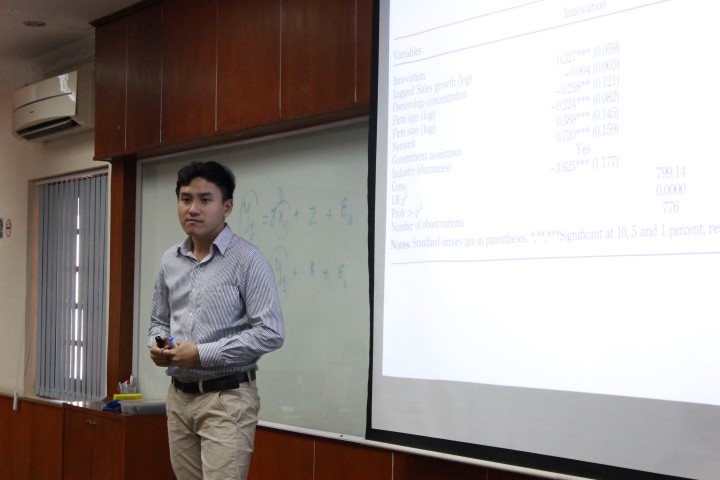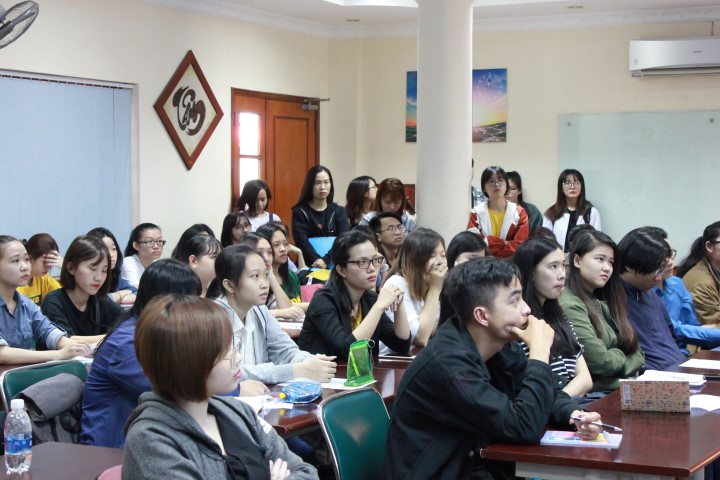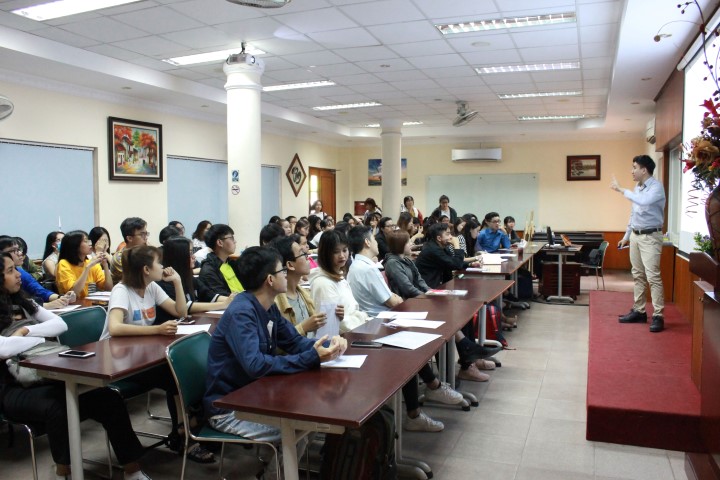[STBI-23-01-2019] Ownership, Innovation, Performance & Risk Shaping Behaviors
Dear professors, lecturers, researchers, colleagues, and students,
You are cordially invited to the next UEH School of Economics STBI (Small Talks Big Ideas) seminar with 2 presentations on
Firm’s Ownership, Innovation, Performance & Risk Shaping Behaviors.
Time: 11:00 – Wednesday, 23 January, 2019
Venue: Room H.001, Campus H, UEH School of Economics, 1A Hoang Dieu, Phu Nhuan District, Ho Chi Minh City
Language: Vietnamese
Topic 1: Ownership feature and firm performance via corporate innovation performance: Does it really matter for Vietnamese SMEs?
Abstract:
The purpose of this study is to investigate the simultaneous relationship among ownership concentration, innovation and firm performance of the small- and medium-sized enterprises (SMEs) in Vietnam during the 2011–2015. By employing a Conditional Mixed Process (CMP) model, the findings show that: there is no impact of ownership concentration on innovation, but it has a positive impact on sales growth; innovation positively affects firm performance; and there exists a positively reverse causality from sales growth to innovation.
Full-text: https://doi.org/10.1108/JABES-10-2018-0078
Topic 2: Risk Shaping Behaviors by The Prospect Theory: How Can It Be Changed by Family’s Power and Quantile Regression?
Abstract:
Ever since paper by Fama and French (1992), there is a diverse stream of literature that demonstrated the same vein of risk-return relationship but focus on the theorem of “Bowman paradox” (Shimizu, 2007; Bromiley, 2009 & 2010; Holmes et al., 2011; Kliger & Tsur, 2011; and Lee & Li, 2016). Among these, there is one kind of study – “The Prospect Theory” that defines the new way of economist’s assumption that risk-return relationship will vary with the situation of market and company based on the possibility of reference target choice for changing managers’ attitude toward risk (Fiegenbaum, 1990; Nickel & Rodriguez, 2002). Nevertheless, the current literature is largely inconclusive on the linkage between risk and return, as there is the problem of “agent conflict”, of the “stakeholder’s effects”, or especially of the family ownership (Arregle et al. 2007; and Andres 2008; Gomez-Mejia et al. 2011, and Berrone et al. 2012). In addition, the prospect theory is usually specified by the two-fold hypothesis of risk aversion and risk-seeking behaviors, while it could potentially be defined by the different level of risks and corporate performance. Acknowledged the above extensive literature, this study would shed light on the following contributions. First, this could be a very first new study analyzes the risk-return relationship within the mechanism of the “prospect theory”, but on the view of the interventions of family’s power that it can direct the risk behavior. Second, by using the modern technique of quantile regression for panel data, this study will define the new literature gaps since it questions on the different level of risk-return behaviors rather than two-fold analysis. Third, this study will also try to do some the robust analysis by testing different contexts – by examining different selected emerging markets of India, Chinese, Taiwan, and Vietnam..
Presenter: Nguyen Son Kien (Eastern International University)
About the presenter:
Mr. Kien Nguyen is the graduate alumni of the Vietnam-Netherlands Program Class 20. He has been working as an assistant, researcher, and lecturer at the different universities includes University of Groningen, Netherlands; RMIT University, Vietnam; University of Economics, Ho Chi Minh city; and Eastern International University, Vietnam. His publications are in The Journal of Developing Areas (Ranked B – ABDC list); The Applied Economics Letters (Ranked B – ABDC list); International Journal of Applied Bussiness and Economic Research (Q2 – SJR); and Journal of Asian Business and Economic Studies. His current research interests are Corporate governance, financial behavior, cryptocurrency, risk theories, financial development, micro-finance, economic development, and economic behavior.
Small Talks Big Ideas (STBI) is a series of academic activities welcoming researchers, students and anyone who are interested in economics and related disciplinary to share an innovative idea or research proposal, to discuss an academic question or a policy-relevant issue, a working paper with preliminary results or a published paper. In 2019, the STBI seminar is regularly held on Wednesday/Thursday, from 11:00 to 12:00 at H.001, UEH School of Economics (1A Hoang Dieu, Phu Nhuan District, HCMC)



